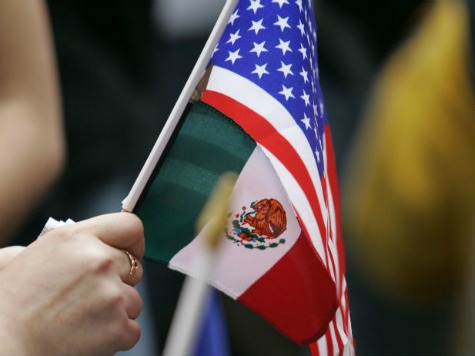TUCSON, Arizona — Drug lords in Mexico have officially been put on notice: President Enrique Peña Nieto is coming for you — even though he said he would not two years ago. Despite the fact Mexico’s leader harshly criticized predecessor Felipe Calderón’s militarized “kingpin strategy” of going after the country’s top narcos, many of the drug war’s most notorious, violent, and wealthy cartel leaders are either sitting behind bars or buried six feet under via Peña Nieto’s orders — three in the past two weeks alone.
Since his inauguration in December 2012, Mexican police or military authorities have killed or apprehended a “who’s who” list of drug lords: Miguel “Z-40” Treviño Morales, Los Zetas (July 2013); Mario “X-20/El Pelon” Ramirez, Gulf cartel (August 2013); Joaquin “El Chapo” Guzmán, Sinaloa Federation (February 2014); Nazario “El Mas Loco” Moreno Gonzalez, Knights Templar (March 2014); Hector “El H” Beltrán Leyva, Beltrán Leyva Organization (October 2014); Vicente Carrillo Fuentes, Juárez cartel (October 2014); and Juan “El Metro 103” Saenz, Gulf cartel (October 2014).
All of these individuals were either the in-control leader of one of the larger and more powerful drug cartels or served in a “Chairman of the Board”-type capacity. The sheer number of these arrests and the importance of these men to their organizations are significant as drug war history goes. However, the ultimate value of this strategy is questionable. Even after all these victories, Peña Nieto has not realized one of his top goals from when he entered office: to reduce crime and violence at the local level.
According to crime statistics published by the Mexican government last year, overall violent crime at the national level is down roughly 16 percent. Ciudad Juárez, known as “Murder City” for its exorbitant homicide rate between 2007-2011, has seen a revival due to a “peace” facilitated by the Sinaloa Federation taking control of that lucrative drug smuggling corridor. But violence has either continued or exploded in other parts of the country, like Michoacán and Tamaulipas states.
The overall flow of illegal drugs across our southwest border and into every recess of the United States has also not diminished. The legalization of marijuana in two US states and the expansion of medicinal marijuana-friendly states has not slowed down the flow of dope across the border. The cheap and needle-free high of black tar heroin has gotten an entirely new demographic hooked on the opiate because users are paying less for the sticky substance than black-market Oxycontin pills.
The sense of security among the Mexican people has certainly not improved, and that is driving more and more people across the border illegally to either request asylum or take their chances with Border Patrol, human smugglers, raping and extorting gang members, and the deadly Sonoran desert. Kidnappings in Mexico have surged to an all-time high as cartel-controlled coyotes prey on the surge of migrant children and families headed north from Central America.
Worse yet, this continuance of the “kingpin strategy” is likely to lead to more violence, not less. Unlike some organizations, Mexican cartels generally don’t die off and disappear when their leaders are slain or arrested. Most have a succession strategy in place to minimize disruptions–and bloodshed that results from internal competition for the throne. But all too often, a power vacuum appears and cartels either fracture into smaller criminal organizations, rivals fight to take over territory, or lower-level cartel members fight for the right to rule. All of the cartels the above-listed men used to control still exist. Some are smaller and weaker now, while some are completely unchanged.
But the bottom line is that many parts of Mexico are not fundamentally safer just because these men are off the street. The government and police are still as corrupt as they were three years ago, the cartels are just as greedy and violent, and the people are just as afraid. Of course, the Mexican government can’t just give up and sit idly by; these kingpins still need to be found, arrested, and successfully prosecuted — if anything, as a show of transparency and accountability to the Mexican people that their justice system is slowly being repaired. But no one should be inclined to believe that these “victories” are anything more than a short-term gain in a long-term war.
Sylvia Longmire is a border security expert and Contributing Editor for Breitbart Texas. You can read more about Mexico’s drug cartels and their illicit activities in her new book, Border Insecurity: Why Big Money, Fences, and Drones Aren’t Making Us Safer.

COMMENTS
Please let us know if you're having issues with commenting.